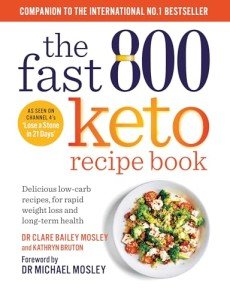Low Carb vs. Keto: Which Diet Works Best?
The best choice between a low carb and a keto diet largely depends on your individual goals, preferences, lifestyle, and how your body responds to different dietary approaches.
Here are some factors to consider for both diets:
Low Carb Diet:

Pros:
Flexibility: Allows for a wider range of foods and more carbohydrates than keto, making it easier to maintain long-term.
Less Restrictive: Many people find it easier to stick to because it doesn’t require such strict carb limits.
Improved Health Markers: Can help with weight loss, blood sugar control, and cardiovascular health without the need for ketosis.
Cons:
Less Immediate Weight Loss: May not lead to the rapid weight loss that some experience on keto.
Less Engagement with Ketosis: If the goal is to reach ketosis for fat adaptation, a low carb diet may not achieve that.
Keto Diet:
Pros:
Rapid Weight Loss: Many people experience quick weight loss due to the body’s shift into ketosis. Fat Burning: Once in ketosis, the body more effectively burns stored fat for fuel.
Reduced Hunger: Ketones can help suppress appetite, making it easier to reduce caloric intake.
Cons:
Restrictive: The strict carb limits can be challenging for some, making it difficult to maintain long-term.
Keto Flu: Many experience temporary side effects (like lethargy and headaches) during the initial transition to ketosis.
Nutrient Deficiencies: If not well-planned, the limited food choices can lead to deficiencies in essential nutrients.
Which Is Best? For Weight Loss:
If your primary goal is rapid weight loss and you can adhere to strict carb limitations, the keto diet may be more effective.
For Substainability: If you prefer a more flexible and sustainable approach that allows for a broader variety of foods, a low carb diet may be a better choice.
Health Considerations: Individuals with certain health conditions (like epilepsy or metabolic disorders) may benefit more from the keto diet, while others may find low carb more suitable.
Conclusion: It’s important to consider your unique circumstances, preferences, and health goals. Consulting with a healthcare professional or a registered dietitian can also help you make an informed decision tailored to your needs. Ultimately, the best diet is one that you can maintain and that helps you achieve your health objectives.
Why do people prefer one diet to the other
When comparing low carb diets to keto diets, several factors contribute to why some people may prefer the keto diet. Both diets prioritize reducing carbohydrate intake, but they differ in their macronutrient composition and goals. Here’s a breakdown of the differences and why some might lean towards keto:
1. Carbohydrate Restriction
- Low Carb Diets: Typically allow for a moderate intake of carbs, often ranging from 50 to 150 grams per day. This can vary widely based on individual goals and dietary preferences.
- Keto Diet: Restricts carbohydrate intake to about 20 to 50 grams per day, which significantly reduces the body’s glucose levels and encourages the body to enter a state of ketosis, where it burns fat for fuel instead of carbs.
2. Ketosis and Weight Loss
- Many people seek the keto diet for its potential to induce ketosis, a metabolic state that can result in accelerated fat loss due to the body burning stored fat for energy. This can lead to quicker weight loss results compared to a more moderate low carb diet, which may not always achieve ketosis.
3. Appetite Control
- The high-fat content of the keto diet can lead to better appetite control and reduced cravings. Fats and proteins tend to be more satiating than carbohydrates, making it easier for some individuals to adhere to the diet.
4. Mental Clarity and Energy Levels
- Some keto followers report increased mental clarity and sustained energy levels due to the stable fuel source provided by ketones. This can be appealing compared to the fluctuating energy levels that can occur with higher carbohydrate consumption.
5. Health Benefits
- The keto diet has been associated with several health benefits beyond weight loss, including improved insulin sensitivity, reduced blood sugar levels, and potential benefits for neurological conditions. These factors can make the keto diet more appealing for individuals with specific health concerns.
6. Community and Resources
- The popularity of the keto diet has led to a wealth of resources, recipes, and community support, which can make it easier for newcomers to adopt and maintain the diet. Social media and online forums often promote keto-friendly foods and meal ideas.
7. Personal Preference
- Some individuals simply prefer the food options available on a keto diet, which emphasizes high-fat, low-carb foods like avocados, nuts, seeds, and certain dairy products. This can make it more enjoyable compared to a traditional low carb diet that might include occasional higher carb foods.
Conclusion
Both low carb and keto diets have their merits, and the best choice ultimately depends on individual goals, lifestyle, and personal preferences. For those seeking rapid weight loss and specific metabolic benefits, the keto diet may be more appealing. Others might prefer the flexibility of a low carb diet, which allows for a higher carbohydrate intake. It’s essential to assess personal health goals and consult with a healthcare professional before making significant dietary changes.
Discover the Perks of Energy Bars for Weight Loss











